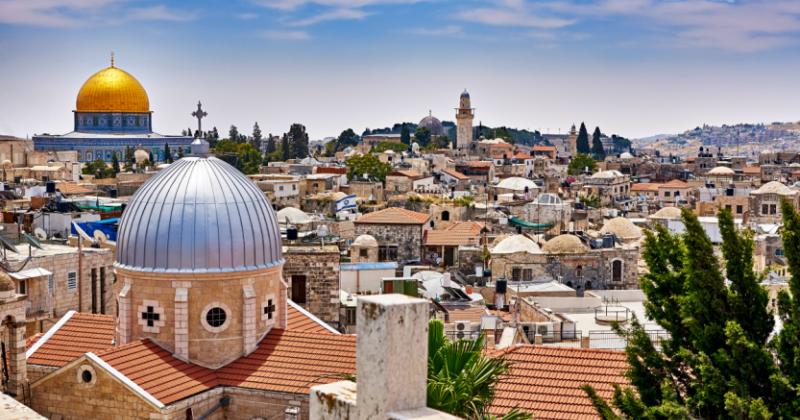President Donald J. Trump’s declaration recognizing Jerusalem as Israel’s capital is problematic, to say the least. It is more pragmatic than principled, more political than ideological or religious, and more of a reward to his supporters at home than a wise decision based on a deep appreciation of the history and spirit of Jerusalem.
President Trump’s 11-minute, 1240-word statement disregards precedents as it runs counter to basic principles developed over seven decades. It does not fully consider the needs and wishes of many of the inhabitants and faithful in Jerusalem and beyond. It is not the result of direct negotiations between Israeli and Palestinian leaders. It contravenes UN resolutions and international law, as well as established U.S. policy.
Religiously, Jerusalem expresses, to varying degrees, the actualities and visions of the three monotheistic faith traditions of Judaism, Christianity, and Islam. Over the millennia, it assumed importance to their sanctified space. In his Redemptionis anno, Pope Saint John Paul II reminded us, through the three monotheistic faiths, that Jerusalem is the locale of God’s encounter with humanity. Privileging one faith over the others ignores the religious and spiritual meaning of Jerusalem.
Politically, Jerusalem is central to the lives and livelihoods of both Palestinian Arabs and Israeli Jews. While conditions between the two national communities are often tense as each uses arguments and counterarguments to discredit the other community, and while reason and truth often get buried under tons of contrary evidence and decades and years of miscommunication, misinterpretation, and misunderstanding, these do not translate into altering the character and status of Jerusalem in order to favor one side over the other. What is needed is wise leadership that urges both sides to negotiate in good faith so as to resolve their conflict and reach a just solution.
Legally, there has been an international consensus on the status of Jerusalem, especially as enshrined in United Nations resolutions. The UN General Assembly Resolution 181 (II) on the partition of Palestine designated both East Jerusalem and West Jerusalem as “a corpus separatum under a special international regime.” There have been at least 17 UN Security Council resolutions since 1967; seven UN General Assembly resolutions since 1967; and six resolutions by the UN Educational, Scientific, and Cultural Organization since 1996 – with most of them critical of Israeli actions in Jerusalem and some even declaring that all measures taken by Israel to change the demographic composition, physical character, institutional structure, or status of occupied territories, including Jerusalem, to be null and void. U.S. administrations since 1967, all supportive of Israel, have used their influence and resources to resolve the Arab-Israeli conflict and Palestinian-Israeli conflict without changing the status of Jerusalem.
If there is to be peace in Jerusalem and the rest of the Holy Land (Israel and Palestine or), the fate of Jerusalem has to be decided through negotiations, not dictation, that recognize both secular and religious stands on the city. Jerusalem is a central part of the present and future of both Palestinian and Israeli societies, and is holy to Jews, Christians, and Muslims around the world. Lasting peace can only be achieved by securing the political aspirations of both peoples and the religious rights of the three religions. There can be no monopoly of sovereignty by either Israelis or Palestinians. Jerusalem should remain shared and undivided.
On December 6, 2017, the Patriarchs and Heads of Churches in Jerusalem sent a letter to President Trump urging him to consider their viewpoint and “continue recognizing the present international status of Jerusalem.” They asked him to help them “all walk towards more love and a definitive peace, which cannot be reached without Jerusalem being for all.” A December 10 Vatican Press Office communiqué reiterated the Holy See’s position on “the singular character of the Holy City and the essential need for respecting the status quo,” as well as the conviction that “only a negotiated solution between Israelis and Palestinians can bring a stable and lasting peace ….” Several political leaders – Middle Eastern, European – counseled President Trump against making the decision and later denounced the decision, favoring instead Palestinian-Israeli negotiations as the way to resolve the city’s fate.
Obviously, President Trump thought otherwise. His premature, political declaration diminishes the U.S. mediation function or its role as an honest broker. It has the potential of delaying peace for years to come.
President Trump’s decision misses the mark. Tragic.
